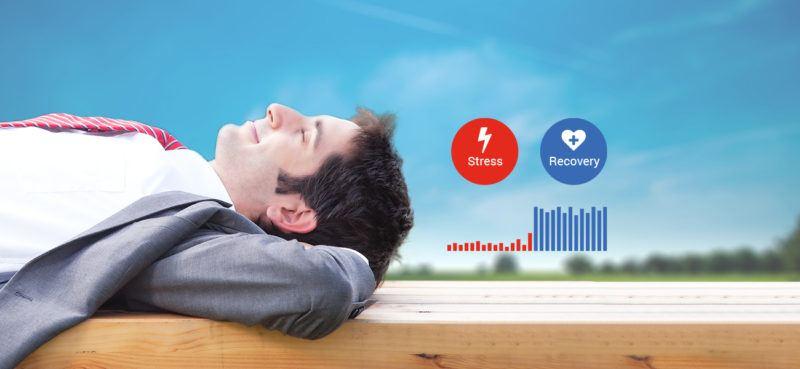
The weekend is a time to unwind and relax after a (potentially stressful) week at work, right? But, when it comes to recharging our batteries, are we making the most of Saturdays and Sundays and making sure we’re recovered and raring to go when the alarm clock goes off on a new work week?
You may think that Saturday – the first non-working day of the week for most of us – would be one of the most relaxing and stress-free days. However, research conducted using the Firstbeat database has previously shown that Saturday is the most stressful day of the week in Finland.
There are several contributing factors thought to be behind this. For instance, lingering stress and work concerns that build up through Monday-Friday can filter into Saturday and delay the body’s recovery. Add to that the fact a lot of us fill up our diaries on Saturdays – whether that be with household chores or back-to-back leisure activities – and the sixth day of the week can turn into a hectic day that leaves little time for periods of recovery.
And, of course, the weekend is often the time to meet friends and enjoy a social drink or two, especially in the summer months when the sun is shining! Adding alcohol to the mix impinges overnight recovery whilst staying up late takes up a lot of energy and slows down the body’s ability to recover. Remember, relaxation doesn’t always mean recovery.
But that doesn’t mean we can’t enjoy our weekends and recover. How can we make sure that we get the best recovery possible over the weekend without sacrificing all the things we enjoy doing in our free time?
Go with the Flow
If your weekend is as scheduled as a workday, it is difficult to find time to recover. Stop glancing at your watch and racing from task to task. Take some time to yourself and “go with the flow”, as they say. Getting away from the hustle and bustle of daily life and taking a leisurely walk in the park or countryside is a great way to reduce stress levels and boost that all-important recovery.
Finding peaceful and restorative moments during the day can boost recovery, helping to improve alertness, performance, motivation, and mood.
Your perception of stress matters, read more →
Don’t Delay
Of course, sometimes there are things that simply must be done no matter how much you want to go with the flow. If there are important tasks to complete that are unavoidable, try and get them done as soon as possible so you can put your feet up with a good conscience for the rest of the day.
A productive morning can rid you of the mental stress that can build up the longer you delay that ‘to do’ list and frees up time later in the day to spend doing what you’d really like.

Getting Some Distance
Limit business to the working week. It can be hard to completely ‘unplug’ from working life but, when it comes to building up recovery over the weekend, checking your work email on your day off is like scoring an own goal – it really is counter-productive.
Turning off your work phone or challenging yourself not to delve into the work inbox over the weekend helps keep those nagging work issues at arm’s length for a few days at least, allowing your mind to focus on other things like family, friends, and hobbies.

Social Time
It can be good to let your hair down now and then, but a weekend spent burning the candle at both ends often leaves you drained and more run-down than you were at 5 pm on Friday when leaving the office. By refocusing your desire to party onto more peaceful activities, you will notice the difference. It doesn’t get better by chance – it gets better by change!
Swapping late-night drinks at the club in favor of an afternoon at the spa or a picnic in the park is sure to refresh you and give you energy long into the week ahead.
Enhanced coaching and wellness services with physiological data. Read more how Firstbeat Life is used in different wellness and health services and join today!
You might also be interested in

A Good Night’s Sleep, What Does It Mean?
It is not just how much you sleep but also how well you sleep that counts. Firstbeat Sleep Quality Assessment takes into account the amount of sleep and the quality of the recovery.

At the Heart of Stress and Recovery
Stress can be defined as a situation where the demands that a person is faced with are greater than the available resources. Stress can also be described as the body’s physical and mental adaptation to real or perceived change.

5 Practical Tips to Help Avoid Workplace Burnout
One of the biggest stress-related issues that continues to impact the workplace is burnout. But what can you do if you start to feel yourself heading in that direction?


